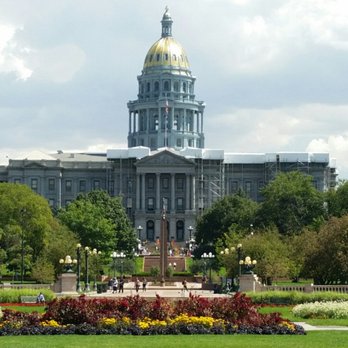SB17-188: “Repeal Income Tax Credit on Innovative Motor Vehicles,” or, as we like to call it the “repeal and repair” bill because money that would go to wealthy electric vehicle owners and corporations will instead be directed to roads and bridges. The bill passed out of Senate Finance on February 28 on a party line vote with Senators Neville, Hill and Tate voting in favor.
Some highlights from the committee hearing include an exchange between Chair of the Finance Committee Senator Tim Neville and Colorado Association of Commerce and Industry lobbyist Bill Skews, when Skews said the bill wasn’t “fair.” To which Senator Neville responded that he “takes exception” to that characterization because he doesn’t think it’s “fair” to use other people’s money for these types of subsidies. Skews acknowledged it was a poor choice of words.
Two additional highlights came from Senator Jack Tate (R-Centennial). The first was an exchange with Waste Management’s Scott Hutchings, who, after repeated questioning from Senator Tate finally acknowledged that the taxpayer-funded subsidy of $20,000 per vehicle “is a great payback for us [Waste Management].”
In case you’re wondering if Waste Management needs the subsidy, WM 2016 net income was $335 million with assets totaling $20.85 billion.
The second highlight was Senator Tate’s closing remarks, “I get that people getting the subsidy like it. There is no intellectual rationale for this subsidy that I can find, except maybe [emphasis mine] for small carriers that need access to capital. “
The Finance Committee moved the bill to Senate Appropriations where it is schedule for a hearing on Thursday, April 6, at 8 am in SCR 357.
HB17-1116: “Continue Low-income Household Energy Assistance,” or, as we call it, “legislative atonement for driving low income Coloradans into energy poverty.” The bill passed out Senate Agriculture, Natural Resources, and Energy Committee on an 8-3 vote. It now moves to Senate Appropriations and is scheduled for hearing on April 6.
Highlights of the Committee hearing include our senior energy policy analyst Michael Sandoval, who testified against it and laid blame for rising electricity cost at the feet of the state legislature.
Also, Senate Assistant Minority Leader Leroy Garcia (D-Pueblo) introduced an amendment to make the monopoly utilities pay for the fund rather than Colorado taxpayers. The amendment vote was tied 5-5 when lobbyists went scurrying to find committee member Senator Rhonda Fields (D-Aurora). They did and successfully lobbied her all the way back to the committee room. The amendment died on a 6-5 vote, but Senator Garcia’s reputation as a champion for Colorado ratepayers continues to grow.
HB17-1227: “Electric Demand-side Management Extension Program,” or as we call it, energy shaming for profit. I’ve written about the economic insanity and sheer stupidity of this make-Xcel-rich program here.
Last week it passed out the House Transportation and Energy Committee on a 9-2 vote. Republicans finally have a chance to come to the ratepayers’ rescue when this bill comes to the Senate. Will they have the courage to throw electricity consumers a lifeline? Senator Kevin Priola (R-Adams County) is one of the Senate sponsors. I’ll keep you posted.
HB17-1232: “Pubic Utilities Alternative Fuel Motor Vehicles,” or, as we call it, ratebasing electric vehicle infrastructure. What does that mean? Colorado electric consumers would be forced to pay for charging/fueling stations, which are used primarily by rich people and corporations, and Xcel profits.
Last week the bill passed out of the House Transportation and Energy Committee on an 8 to 5 vote. Representative Daneya Esgar (D-Pueblo) joined the minority voting against the bill. Representative Polly Lawerence (R-Douglas County) joined the majority voting in favor.
A highlight from the Committee hearing was an exchange between the Colorado Oil and Gas Association (COGA) testifying in support to the astonishment of Representative Jon Becker (R-Morgan County) who questioned their support and had this to say about COGA’s blatant rent seeking.
HB17-1225: “Electric Regional Transmission Organization Hearing,” or as we call it, “organized markets” or asking for a hearing to make Colorado join a grid that includes California. The Committee hearing for this bill was supposed to be last week but has been delayed until April 5 to clean up some of the language.
Actually, several sources I trust have told me the Regional Transmission Organization (RTO) that bill supporters are considering is not one that includes California. That’s a relief. Also, they’ve told me that “organized markets” (that don’t include California) are a necessary first step toward consumer choice in electricity providers. I’m not completely convinced of that yet, but these two points together give me enough pause to reconsider my position on the bill.
One thing I’m not convinced of surrounding this bill is that it is needed in the first place. Why can’t the supporters just ask the Transportation Review Committee to include RTOs on their interim agenda? Is someone on the committee reluctant to bring the issue forward and why? Those questions haven’t been answered.
I’ll listen to the Committee hearing and write more on RTOs in the near future. Bottom line, I’m supportive of the examining RTOs and even an interim hearing with the Transportation Review Committee but not necessarily the bill.








